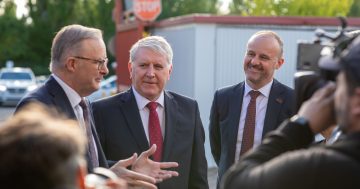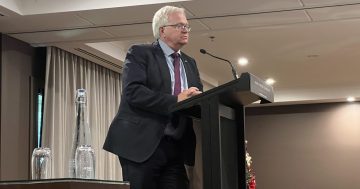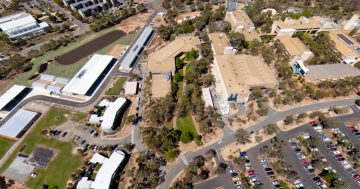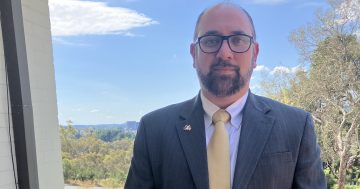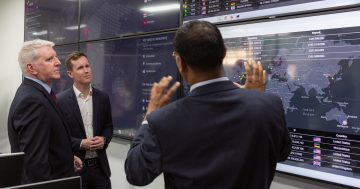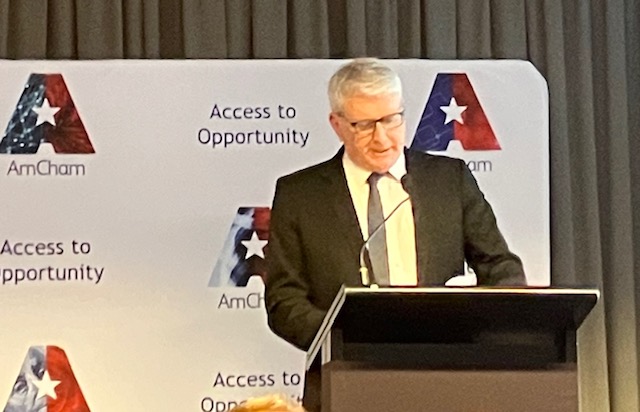
Minister for Skills and Training Brendan O’Connor addressing AmCham. Photo: Region.
Australia’s skills shortage and the policy fix needed to attract and retain workers across the economy were the focus of discussion at the American Chamber of Commerce in Australia (AmCham) in Canberra on Tuesday (18 October).
Minister for Skills and Training Brendan O’Connor addressed a lunchtime audience saying there was a huge task ahead of the nation to boost its skilled workforce.
According to the OECD, Australia is experiencing the second most severe labour shortage in the developed world.
“That’s remarkable,” the Minister said, noting there were severe skills shortages in many sectors of the economy.
Devising and executing an appropriate set of policies to address this critical issue facing the country was a priority for the government.
“In the context of a highly competitive global market, the Australian Government is focussed on how we can maximise support for growing our domestic talent and how we can attract that skilled workforce,” he said.
“My vision is for a flexible and adaptable skills system that supports businesses, including those in new and emerging industries, and provides a path for workers that sees opportunities for transferable skills.”
He said while next week’s federal budget won’t be flashy, it will be responsible in the skills and workplace portfolio.
“The reality is businesses need workers right now and that is why we have acted swiftly to increase the number of available permanent migration visas for the year to June 2023 from 160,000 to 195,000,” he said.
“That is an extra 35,000 skilled workers to ease the immediate pressures in the area of skilled workers for that year.”
The number of visas still in the system is just short of 1 million.
“That speaks to, I think, a system that has not been working for some time.”
He noted “our current skills crisis has, of course, been exacerbated by COVID”, but there were signs of a looming skills shortage before the pandemic hit.
Mr O’Connor said while advice the government is receiving shows a third of the global economy could fall into recession next year, Australia might avoid it.
But there will be tough financial times ahead regardless.
That doesn’t mean the government will turn a blind eye to the exploitation of workers.
“We want to make sure that we see success in all sectors, particularly in the emerging sectors of the economy,” Mr O’Connor said.
“We will do so in a way that says it’s about being flexible and adaptable, but we also want to make sure businesses and workers benefit.
“I don’t believe it’s a fair contrivance to say, ‘you sell labour over a platform and that’s why you don’t get minimum wage’.
“We want to see businesses thrive and the economy grow, but workers deserve to be sharing in that profit and I don’t believe it’s been as fair as it should have been.
“But if you’re pro-worker, you’re pro-employer because without business there’s no employment.
“So the intention is to get it fair for all. And whether it’s the gig economy or anywhere else, we want a system that operates in an environment that allows for economic growth, productivity improvement through discussions and negotiations if needed, and as a government, we want to support industries along the way.”












